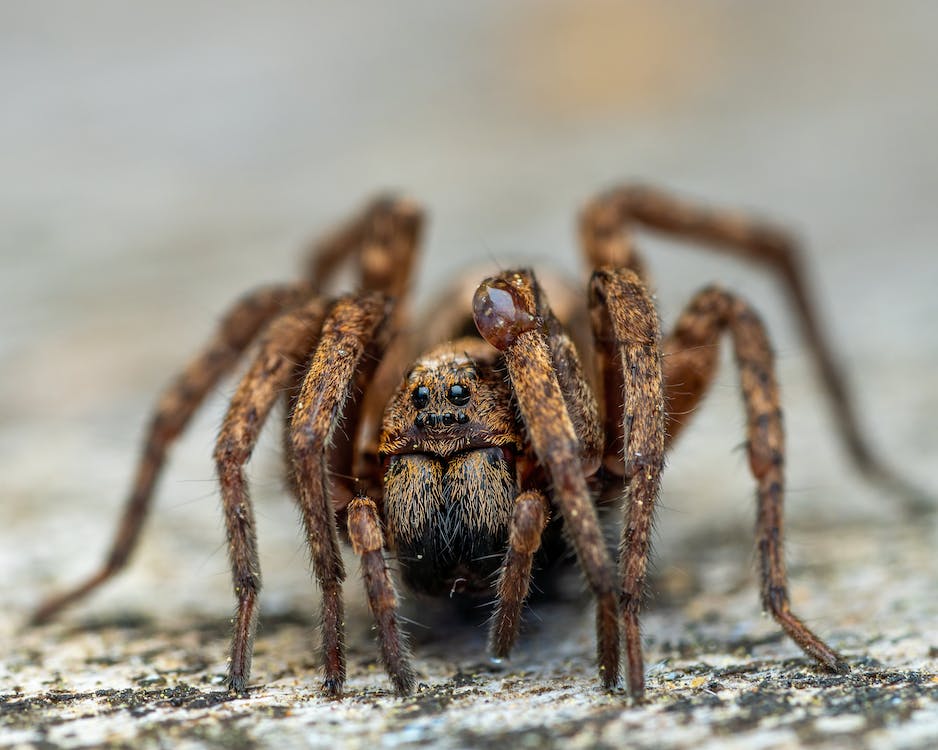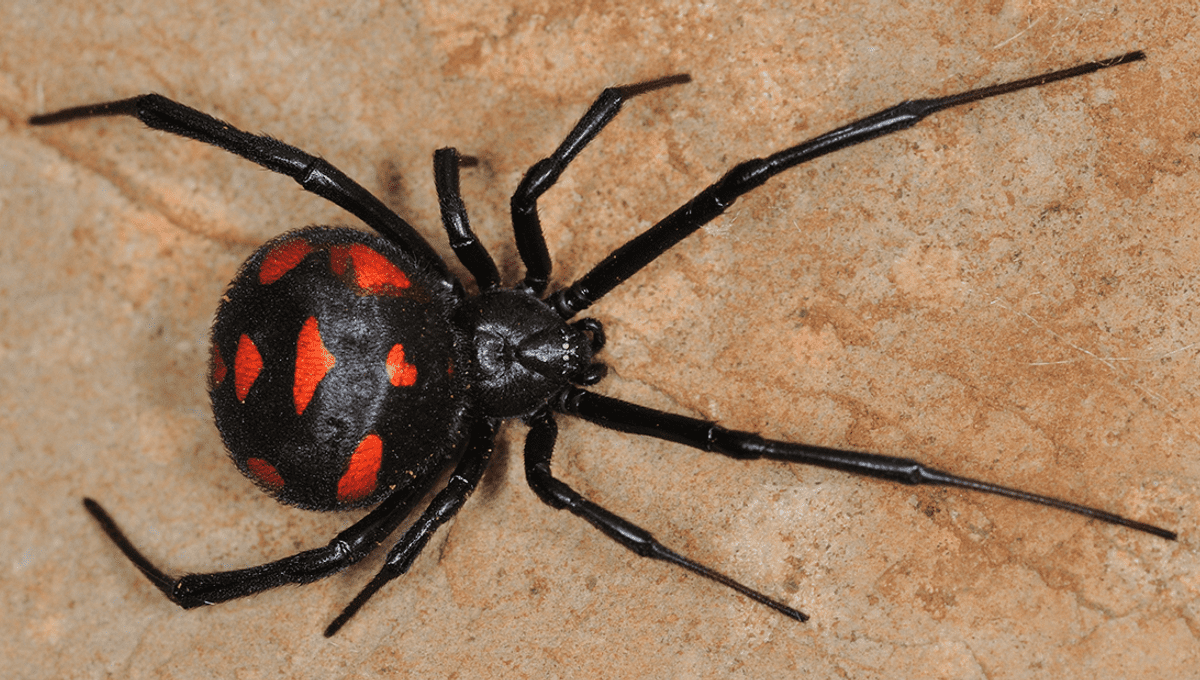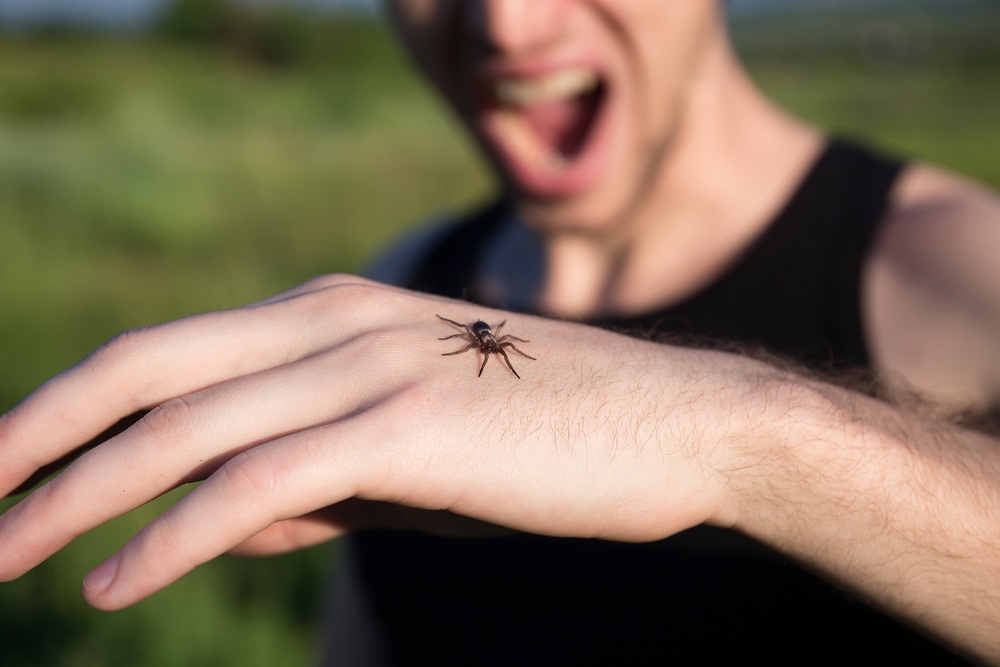South Carolina is home to a variety of different spider species. Some of these spiders are harmful to humans, while others are not. It is important to be able to identify which spiders are which, in order to avoid being bitten by a harmful spider.
There are three main types of spiders found in South Carolina: the black widow, the brown recluse, and the hobo spider. Black widows are easily recognizable by their red hourglass-shaped mark on their abdomens. Brown recluse spiders are brown in color and have a violin-shaped mark on their backs. Hobo spiders are brown or gray in color and have a chevron-shaped pattern on their abdomens.
Of these three spider types, the black widow is the most dangerous to humans. Black widow spider bites can cause severe pain, muscle cramping, and even death in some cases. Brown recluse spider bites can also be painful and cause skin tissue to die. However, hobo spider bites are not considered to be dangerous to humans.
If you think you have been bitten by a harmful spider, it is important to seek medical attention immediately.
The Most Common Spiders in South Carolina

Spiders are one of the most feared pests in South Carolina, and for good reason. These eight-legged creatures can be found in nearly every home, and their bites can be both painful and dangerous.
However, not all spiders are created equal. In fact, most spiders pose no threat to humans whatsoever. In South Carolina, the most common spiders are the wolf spider, the black widow spider, and the brown recluse spider.
Of these three spider species, the brown recluse is by far the most dangerous to humans. These spiders are brown in color and have a distinctive violin-shaped mark on their backs. Brown recluse bites are rare but can be extremely serious, often resulting in necrosis (tissue death).
The black widow spider is also considered dangerous to humans. These spiders are black in color with a distinctive red hourglass shape on their abdomens. Black widow bites can cause muscle pain, nausea, and difficulty breathing.
The wolf spider is the least dangerous of the three common South Carolina spiders. These spiders are brown or gray in color and have large bodies (up to 1 inch in length). Wolf spider bites generally only cause localized pain and swelling.
The Most Dangerous Spiders in South Carolina

There are nearly 3,000 species of spiders in the United States, but only a handful of them are considered dangerous to humans. In South Carolina, there are three main types of spiders that pose a threat: the brown recluse, the black widow, and the hobo spider.
The brown recluse is most commonly found in the southern and midwestern United States. This spider is light brown with a dark brown violin-shaped mark on its back. It generally only bites humans when it feels threatened, but its venom can cause necrosis (tissue death) at the site of the bite.
The black widow is distinguishable by the red hourglass shape on its abdomen. This spider is found throughout the southern United States and its venom is 15 times stronger than that of a rattlesnake. Although a black widow bite is rarely fatal to humans, it can cause serious illness.
The hobo spider is native to Europe but has been found in the Pacific Northwest and parts of Canada. It was first spotted in South Carolina in 2001. This spider is brown with a striped abdomen and can grow to be about 1/3 inch long. Its venom is not as potent as that of the black widow or brown recluse, but a hobo spider bite can still cause serious illness in humans.
How to Protect Yourself from Spiders in South Carolina

Spiders are notoriously difficult to get rid of, and that’s especially true in South Carolina. With its humid climate and plenty of places for spiders to hide, the Palmetto State is a playground for these eight-legged pests.
To make matters worse, some of the most dangerous spiders in the country—including the black widow and the brown recluse—call South Carolina home. If you’re not careful, a run-in with one of these spiders can result in a trip to the hospital.
Here are a few tips to help you avoid spiders and protect yourself from their bites:
-Keep your home clean and free of clutter. Spiders love to hide in dark, cluttered places. The less clutter you have around your home, the fewer places there are for them to hide.
-Seal up cracks and holes. Spiders can squeeze through tiny cracks and holes around your home. To keep them out, seal up any openings with caulk or another sealant.
-Keep your yard tidy. In addition to hiding in your home, spiders also like to hide in tall grass and weeds in your yard. Keep your grass short and your weeds under control to make your yard less inviting to spiders.
-Be cautious when working in areas where spiders may live. When working in areas where spiders are likely to be found—such as storage sheds, attics, and basements—wear long pants, a long-sleeved shirt, gloves, and a face mask to protect yourself from bites.
How to Get Rid of Spiders in South Carolina
The best way to get rid of spiders in South Carolina is to call a professional exterminator. They will be able to identify the type of spider and recommend the best course of treatment.
The Benefits of Spiders in South Carolina
Spiders might give some of us the heebie-jeebies, but these creepy-crawlies play an important role in our ecosystem. In South Carolina, there are many different species of spiders that serve different purposes. Some spiders are predators that help control populations of harmful insects, while others help pollinate plants and flowers.
Most spiders in South Carolina are harmless to humans and will only bite if they feel threatened. While a spider bite is usually not dangerous, there are a few species of spiders in our state that can be harmful to humans if their venom is injected. It is important to be able to identify these spiders so that you can avoid them.
The Carolina Wolf Spider is one of the most common spiders in South Carolina. These spiders can grow up to two inches in length and are brown or gray in color with striped legs. They are not aggressive and will only bite if they feel threatened. The venom of a Carolina Wolf Spider is not harmful to humans.
The Brown Recluse Spider is one of the most dangerous spiders in South Carolina. These spiders are brown or tan in color and have a violin-shaped marking on their back. They can grow up to half an inch in length and are usually found in dark, secluded areas such as basements or attics. Brown Recluse Spiders are relatively shy and will only bite if they feel threatened or trapped. The venom of a Brown Recluse Spider can be harmful to humans and can cause side effects such as fever, vomiting, and lymphadenopathy (enlarged lymph nodes). If you suspect you have been bitten by a Brown Recluse Spider, it is important to seek medical attention immediately.
The Black Widow Spider is the most poisonous spider in South Carolina. These spiders are black with a red hourglass shape on their abdomen. They can grow up to half an inch in length and are usually found near areas with a lot of insects such as gardens or woodpiles. Black Widow Spiders are not aggressive and will only bite if they feel threatened or their web has been disturbed. The venom of a Black Widow Spider can be very harmful to humans, especially children and the elderly, and can cause side effects such as muscle pain, nausea, difficulty breathing, and seizures. If you suspect you have been bitten by a Black Widow Spider, it is important to seek medical attention immediately
The History of Spiders in South Carolina
Spiders have been around for millions of years, and they can be found in every corner of the world. South Carolina is no exception. There are dozens of different species of spiders in the state, and they play an important role in the local ecosystem.
Some of the most common spiders in South Carolina include the black widow, brown recluse, wolf spider, and hobo spider. These spiders are all considered to be dangerous to humans, and they should be avoided if possible. However, it is important to remember that not all spiders are dangerous. In fact, many spiders are actually beneficial to have around since they help to control populations of harmful insects.
If you do come into contact with a dangerous spider, it is important to seek medical attention immediately. Spider bites can cause serious health problems, and in some cases, they can even be fatal. If you think you may have been bitten by a spider, it is best to err on the side of caution and go to the hospital just to be safe.
While spiders can sometimes be a nuisance, it is important to remember that they play an important role in our ecosystems. If you come across a spider in your home or yard, try to refrain from killing it unless absolutely necessary. Chances are, it is more afraid of you than you are of it!
Famous Spiders in South Carolina
There are many spiders that call South Carolina home, but some are more famous than others. The Carolina Wolf Spider, for example, is the state’s largest spider. It can grow to be more than an inch in length and is brown with darker markings. This spider is not considered dangerous to humans, but its large size can be intimidating.
The Golden silk orb-weaver is another well-known South Carolina spider. As its name suggests, this spider weaves golden silk into its webs. These spiders can be found in wooded areas and gardens and are not considered dangerous to humans.
The Brown Recluse spider is perhaps the most feared spider in South Carolina. This spider is small, only about half an inch in size, but it packs a powerful venom. Brown Recluse spiders are brown with a darker marking on their backs that resembles a violin. If you are bitten by a Brown Recluse, it is important to seek medical attention immediately as their bites can be serious.
Fun Facts about Spiders in South Carolina
Did you know that there are more than 3,000 species of spiders in the United States? Of those, only about 100 species are found in South Carolina.
Spiders are important members of the ecosystem, helping to control populations of other insects. Some spiders are even helpful to humans, preying on pests that damage crops or carry diseases.
Most spiders in South Carolina are harmless to humans and pose no threat. However, there are a few species that can be dangerous, so it’s important to be able to identify them.
Here are some fun facts about spiders in South Carolina:
-The state’s most common spider is the American house spider (Parasteatoda tepidariorum), which is found in homes and other buildings across the state.
-The Carolina wolf spider (Hogna carolinensis) is the largest spider in South Carolina, with adults reaching up to 1 inch in body length.
-The brown recluse spider (Loxosceles reclusa) is the most dangerous spider in the state and can cause serious health problems if its bite is not treated immediately.
-The green lynx spider (Peucetia viridans) is a brightly colored hunting spider that is often seen in gardens or on flowers.
-The crab spider (Misumena vatia) is a small spider that gets its name from its crab-like appearance. This Spider can change color to match its surroundings, making it difficult to spot.